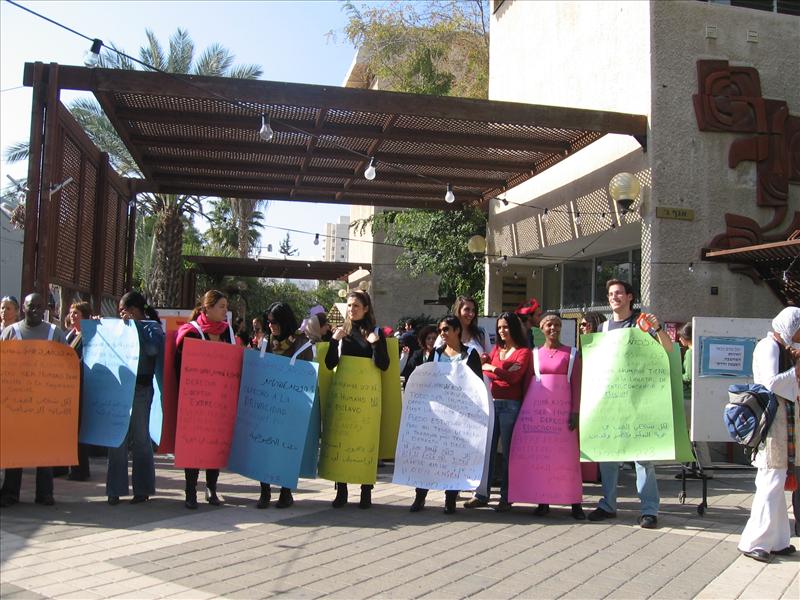Education for Social Justice, Environmental Justice and Peace Education
Kibbutzim College of Education
Our new program of elementary teachers' preparation strives to build teachers' capacity to educate children toward social justice and peace, conflict transformation and dialogue. It is a four years degree program (B.ed), given by the Kibbutzim College of Education, that also gives a Mediation Certificate.

�
Students' background
The group of students reflects the various segments of Israeli society. The group contains Palestinians and Jews, migrant worker, Jews from Ethiopia, Georgia, deaf, students from the cultural and geographical center and peripheries 18-48 years old. The participants speak 7 different mother tongues and affiliate with 4 religions. They are committed activists in different organization for social change, which are part of the civil society in Israel.
Goals
To develop understandings between different groups and create a rich multicultural learning environment.
To learn and teach educational philosophy and praxis of critical feminist pedagogy.
To prepare a group of leading educators who would bring peace education into formal and non-formal education.
To create a network of peace education activist that would teach toward a social change.
To raise awareness to gender inequalities and other forms of discrimination in education
To give tools and skills to create social change projects with gender mainstreaming objectives.
Program
We offer variety of course dealing with Israeli Society, Critical feminist pedagogy, movements for social change, human rights and children rights, gender equity, social justice, environmental justice, social economy, art for change. In addition the students specialize in one discipline: math, Science, literature and language and Jewish culture. They are being taught how to integrate social justice and peace education into the existing required curricula. Along the 4 years of preparation the students learn about the Jewish Palestinian conflict, meet with peace organizations and research the different historical narratives. They learn through dialogical methods, group activities, group interactions integration of theories and practice.
Practicum
The students do a practicum education work in organization for social change, and in schools. They are required to implement ideas of alternative education, innovative relevant pedagogy for children from marginalized groups.